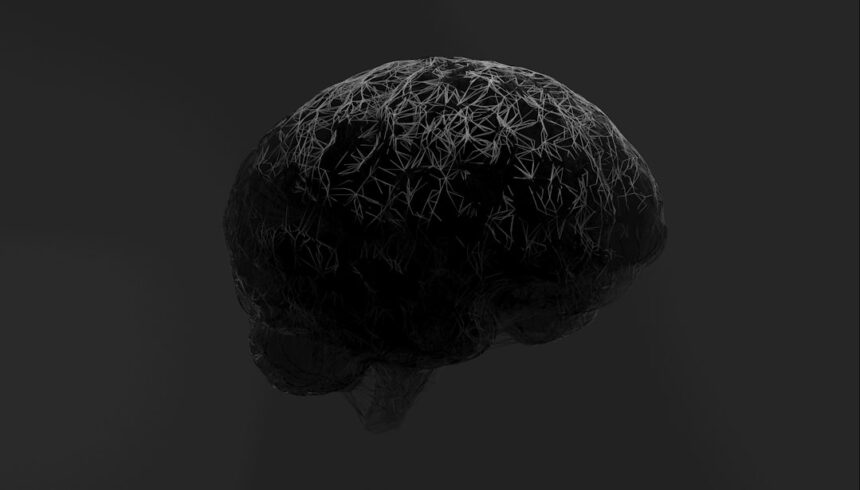Your brain is a remarkable organ, capable of processing vast amounts of information and making complex decisions in the blink of an eye. However, it is also a master of deception, often leading you to perceive reality in ways that are not entirely accurate. This phenomenon, known as the deceptive brain, highlights the intricate relationship between your thoughts, perceptions, and the external world.
Understanding this concept is crucial for navigating daily life, as it can help you recognize when your mind may be leading you astray. As you delve deeper into the workings of your brain, you will discover that it is not merely a passive receiver of information. Instead, it actively interprets and constructs your reality based on a myriad of factors, including past experiences, emotions, and cognitive biases.
By becoming aware of these influences, you can better equip yourself to challenge misleading thoughts and perceptions, ultimately leading to a more accurate understanding of the world around you.
Key Takeaways
- The brain interprets reality based on perception, which can be influenced by cognitive biases.
- Memory distortion can alter past events, leading to a skewed perception of reality.
- Emotions play a significant role in shaping perception and can lead to deceptive thinking.
- Attention can be manipulated to deceive the brain and create a false sense of agency.
- Social influence and overconfidence can lead to deceptive thinking, but strategies can be used to overcome it.
The Power of Perception: How Your Brain Interprets Reality
Perception is a powerful tool that shapes your understanding of reality. Your brain processes sensory information and constructs a coherent picture of the world based on that data. However, this process is not infallible; it is influenced by various factors that can distort your perception.
For instance, your past experiences and cultural background play significant roles in how you interpret new information. When faced with a situation, your brain draws upon these experiences to make sense of what you see and hear, often leading to interpretations that may not align with objective reality. Moreover, your brain’s interpretation of reality is also affected by context.
The same stimulus can evoke different responses depending on the surrounding environment or the emotional state you are in at the time. For example, a neutral facial expression may be perceived as friendly or hostile based on your mood or previous interactions with others. This subjectivity in perception underscores the importance of recognizing that your understanding of reality is not solely based on objective facts but is also shaped by your internal landscape.
Cognitive Biases: How Your Brain Skews Information

Cognitive biases are systematic patterns of deviation from norm or rationality in judgment. These biases can significantly skew the way you process information and make decisions. For instance, confirmation bias leads you to favor information that confirms your preexisting beliefs while disregarding evidence that contradicts them.
This tendency can create echo chambers in which your views become increasingly polarized, making it difficult to engage with differing perspectives. Another common cognitive bias is the availability heuristic, which causes you to overestimate the importance of information that readily comes to mind. If you frequently hear about plane crashes in the news, for example, you may develop an irrational fear of flying despite statistical evidence showing that it is one of the safest modes of transportation.
By understanding these biases, you can begin to recognize when they are influencing your thoughts and decisions, allowing you to approach situations with a more critical mindset.
Memory Distortion: How Your Brain Alters Past Events
| Memory Distortion Metrics | Findings |
|---|---|
| False Memories | Research shows that our brains can create false memories, leading us to believe in events that never actually happened. |
| Suggestibility | People can be influenced by suggestions and leading questions, leading to distorted memories of past events. |
| Emotional Impact | Emotions can impact the way we remember events, leading to memory distortions based on our emotional state at the time of the event. |
| Memory Reconstruction | Our brains reconstruct memories each time we recall them, leading to potential alterations and distortions over time. |
Your memories are not as reliable as you might think. The brain’s ability to store and retrieve information is subject to distortion, which can lead to altered recollections of past events. This phenomenon occurs for various reasons, including the malleability of memory and the influence of external factors such as suggestion or misinformation.
When recalling an event, your brain reconstructs the memory rather than retrieving it verbatim, which opens the door for inaccuracies to creep in. Additionally, emotions play a significant role in how memories are formed and recalled. Highly emotional experiences tend to be remembered more vividly than neutral ones; however, this emotional intensity can also lead to embellishments or omissions in your recollection.
For instance, if you experienced a traumatic event, your memory of it may be clouded by fear or anxiety, causing you to remember certain details while forgetting others entirely. By acknowledging the fallibility of memory, you can approach your recollections with a more discerning eye and be open to the possibility that your past may not be as clear-cut as you believe.
The Influence of Emotions on Perception
Emotions are powerful forces that shape how you perceive the world around you. They can color your interpretations of events and influence your decision-making processes in profound ways. For example, when you are feeling happy or content, you are more likely to view situations positively and interpret ambiguous cues as friendly or supportive.
Conversely, when you are feeling anxious or upset, your perception may skew toward negativity, leading you to interpret neutral interactions as hostile or dismissive. This emotional lens through which you view reality can create a feedback loop that reinforces your feelings and perceptions. If you consistently interpret situations through a negative emotional filter, it may lead to a cycle of pessimism that affects your overall outlook on life.
Recognizing the impact of emotions on perception allows you to take a step back and assess whether your feelings are influencing your interpretations in ways that may not be justified.
The Role of Attention in Deception

Attention is another critical factor in how your brain processes information and constructs reality. Your brain has limited resources for processing stimuli at any given moment, which means it must prioritize certain information over others. This selective attention can lead to blind spots where important details go unnoticed while irrelevant information takes center stage.
As a result, your perception of reality can become skewed based on what you choose to focus on. For instance, if you are engrossed in a conversation with a friend at a busy café, you may fail to notice other patrons or even significant events happening around you. This selective attention can create an incomplete picture of reality and lead to misunderstandings or misinterpretations.
By becoming aware of how attention shapes your perceptions, you can work on broadening your focus and being more mindful of the various elements at play in any given situation.
The Illusion of Control: How Your Brain Creates a False Sense of Agency
Your brain has an innate desire for control and predictability in an unpredictable world. This desire can lead to an illusion of control—an overestimation of your ability to influence outcomes in situations where chance plays a significant role. For example, when playing games of chance like roulette or lottery tickets, you may believe that certain strategies or rituals can increase your odds of winning, despite the inherent randomness involved.
You might find yourself believing that your actions have more impact on events than they actually do, leading to feelings of frustration or disappointment when outcomes do not align with your expectations. Recognizing this tendency allows you to cultivate a more realistic understanding of control and agency in your life, helping you navigate uncertainty with greater resilience.
The Impact of Social Influence on Your Thoughts and Beliefs
Your thoughts and beliefs are not formed in isolation; they are heavily influenced by social interactions and cultural contexts. From an early age, you absorb ideas from family members, peers, and societal norms that shape your worldview. This social influence can lead to conformity—adopting beliefs or behaviors simply because they are prevalent within your social circle—often at the expense of critical thinking.
Moreover, group dynamics can amplify certain beliefs while silencing dissenting opinions. In group settings, individuals may feel pressured to align their views with those of the majority, leading to groupthink—a phenomenon where critical evaluation is sacrificed for consensus. By being aware of these social influences on your thoughts and beliefs, you can cultivate a more independent mindset that encourages open dialogue and critical examination of ideas.
The Dangers of Overconfidence: How Your Brain Leads You Astray
Overconfidence is a common cognitive pitfall that can lead to poor decision-making and misjudgments. Your brain often overestimates its abilities and knowledge, creating a false sense of certainty about outcomes. This overconfidence can manifest in various areas of life—whether it’s underestimating risks in financial investments or overestimating your skills in a particular task.
The dangers associated with overconfidence are significant; they can lead to reckless behavior and missed opportunities for growth or learning. When you believe too strongly in your abilities without acknowledging potential limitations or uncertainties, you may overlook valuable feedback or advice from others. Cultivating humility and recognizing the limits of your knowledge can help mitigate the risks associated with overconfidence and foster a more balanced approach to decision-making.
Strategies for Overcoming Deceptive Thinking
To navigate the complexities of your deceptive brain effectively, it is essential to adopt strategies that promote critical thinking and self-awareness. One effective approach is mindfulness—practicing being present in the moment without judgment allows you to observe your thoughts and feelings without becoming entangled in them. This awareness can help you identify cognitive biases or emotional influences that may be distorting your perceptions.
Engaging with individuals who hold different viewpoints encourages open dialogue and critical examination of ideas. By actively questioning assumptions and seeking out evidence-based information, you can cultivate a more nuanced understanding of reality that transcends deceptive thinking patterns.
Understanding and Navigating the Deceptive Brain
In conclusion, understanding the deceptive nature of your brain is crucial for navigating life with clarity and insight. By recognizing how perception, cognitive biases, memory distortion, emotions, attention, social influences, overconfidence, and other factors shape your thoughts and beliefs, you empower yourself to challenge misleading narratives and cultivate a more accurate understanding of reality. As you continue on this journey toward self-awareness and critical thinking, remember that it is natural for everyone to experience moments of deception in their thinking processes.
The key lies in developing strategies to recognize these moments and respond thoughtfully rather than reactively. By doing so, you will enhance not only your decision-making abilities but also your overall quality of life as you navigate the complexities of human experience with greater clarity and purpose.
In exploring the fascinating ways our brains can deceive us, it’s intriguing to consider how cognitive biases and mental shortcuts often lead to misconceptions and errors in judgment. A related article that delves into this topic can be found on Unplugged Psychology’s website. This article provides insights into the psychological mechanisms behind these mental missteps and offers strategies to mitigate their impact. For a deeper understanding, you can read more about it by visiting Unplugged Psychology.
WATCH THIS! The Shocking Truth About Perception Loops
FAQs
What is the brain’s role in perception?
The brain plays a crucial role in processing and interpreting sensory information, ultimately shaping our perception of the world around us.
How does the brain sometimes distort reality?
The brain can distort reality through various cognitive biases, such as confirmation bias, where it seeks out information that confirms preexisting beliefs, and the availability heuristic, where it relies on readily available information to make judgments.
What is the impact of cognitive biases on decision-making?
Cognitive biases can lead to flawed decision-making by influencing how we perceive and interpret information, potentially leading to errors in judgment and decision-making.
Can the brain’s distortions be corrected?
While it may be challenging to completely eliminate cognitive biases, awareness of their existence and actively seeking out diverse perspectives can help mitigate their impact on decision-making and perception.
How does the brain’s tendency to lie affect everyday life?
The brain’s tendency to distort reality can impact various aspects of everyday life, including interpersonal relationships, decision-making, and overall understanding of the world.




